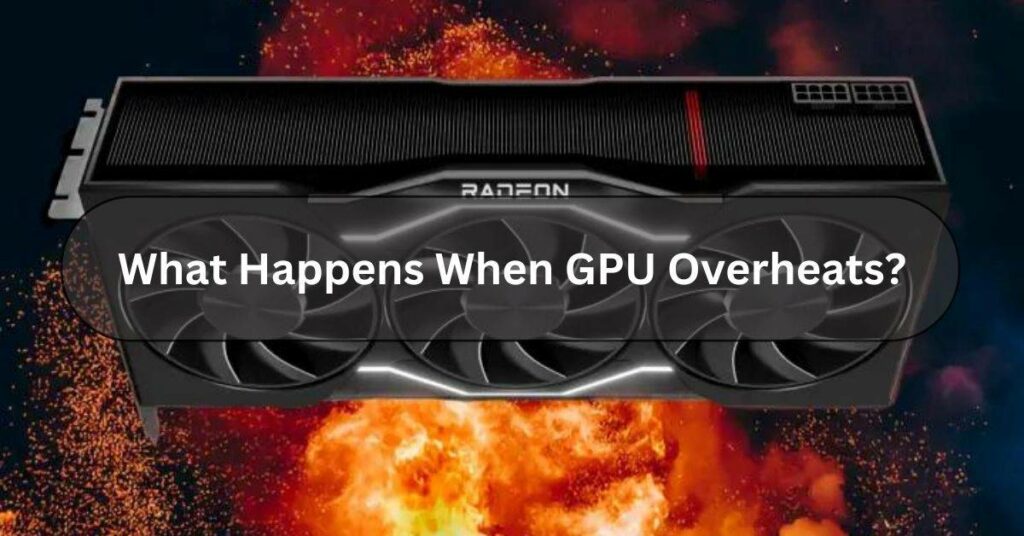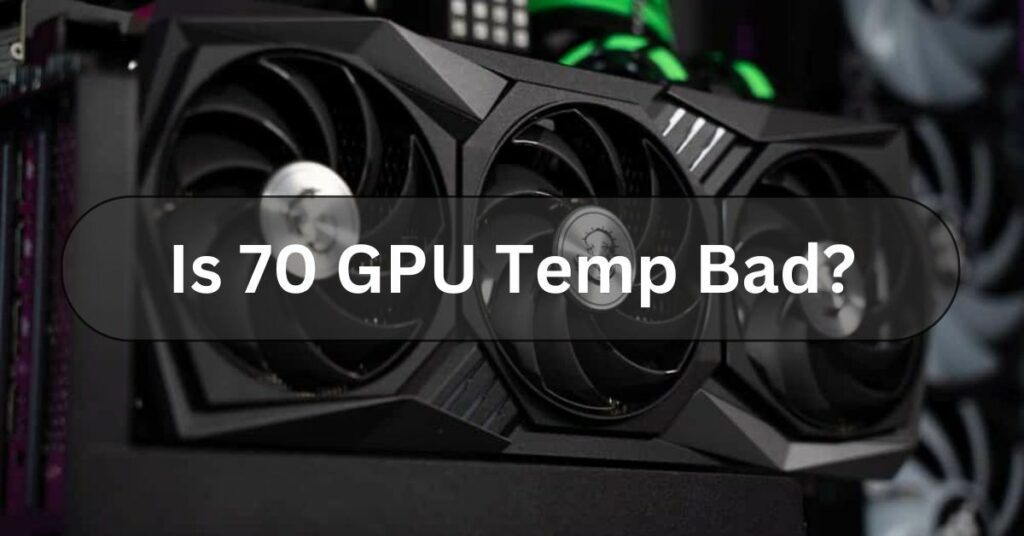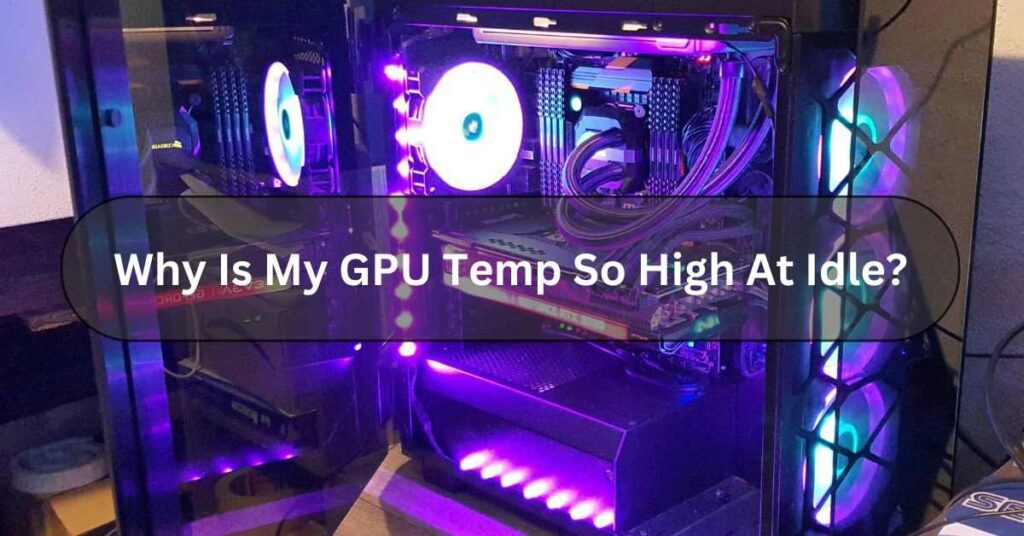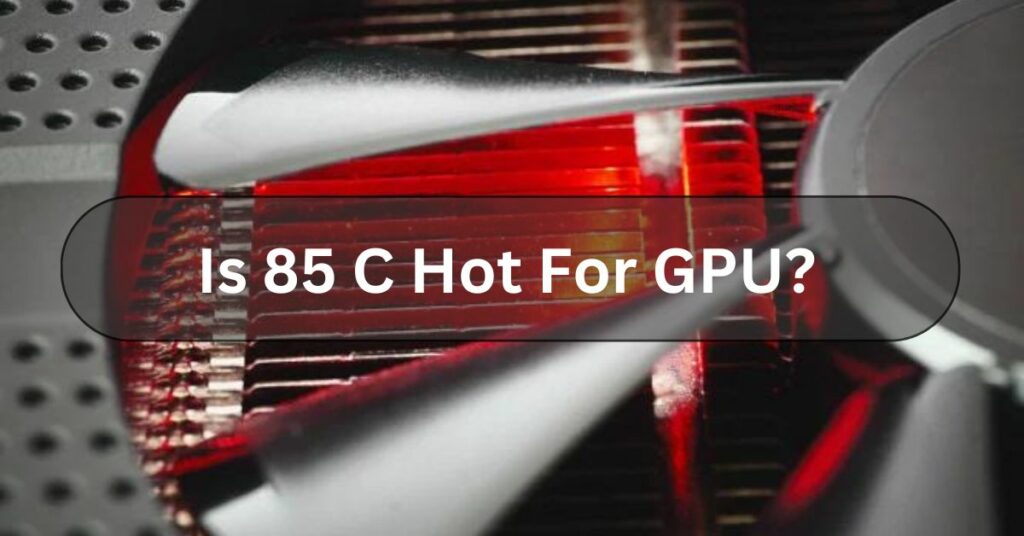Have you ever wondered What Happens When GPU Overheats? Let me tell you about a time when it happened to me. Imagine you’re playing a game or working on something important, and suddenly your computer starts acting strange. That’s what happened to me recently. I was confused and frustrated, wondering what was happening inside my computer.
When a GPU overheats, It drops the performance of your GPU or video card. This can also cause problems like your computer freezing, crashing, or even damaging the GPU.
So, In this article, I’m going to share What Happens When GPU Overheats? and why it’s important to keep it cool.
What Is GPU Overheating? – Here To Know!
Imagine your computer working hard like a runner during a race. The graphics card, or GPU, is like the engine that helps display graphics. When it works extra hard, it gets hot just like the runner gets sweaty.
GPU overheating happens when the graphics card gets too hot. This can be caused by dust buildup, poor airflow in your computer case, or even running very demanding games.
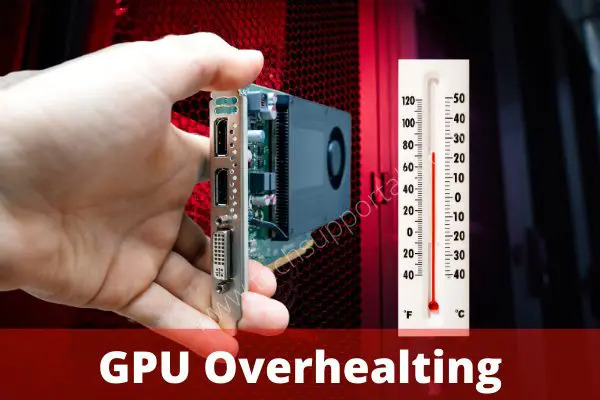
If your GPU gets too hot, It drops the performance of your GPU or video card. It can also slow down your computer or even shut it down completely. In extreme cases, it can damage the card itself.
What Happens When A Computer’s Graphics Card Overheats? – Let Us Explore!
Your computer’s graphics card gets hot when it works hard, just like you get hot when you run. That’s okay usually, but if it gets too hot, it’s like a fever! Here’s what might happen:
- Games Go Wonky: Things slow down and stutter, like trying to play catch with butterfingers.
- Crazy Colors: Your screen gets weird squiggles or messed up colors, like seeing the world through a funhouse mirror.
- Computer Nap: In the worst case, your computer shuts down completely to take a break, like needing to lie down in the shade.
If you see these things, turn your computer off and let it cool down. It might just need some cleaning or more breathing room like you might need some water and a fan!
Read Also: Is XFX A Good GPU Brand?
What Are The Symptoms Of Overheated GPU?
When your computer’s graphics card gets too hot, it can make a lot of noise from the fans, show strange things on the screen, or even cause errors with graphics. But sometimes these problems can happen if the graphics card itself is broken or old.
So, if you notice any of these signs, you should use special software to check how hot your graphics card is. Some common tools for this are Open Hardware Monitor, MSI Afterburner, and HWMonitor.
Here are some symptoms of an overheated GPU:
Screen Glitches Or Artifacts:
You might see weird shapes, colors, or patterns on your screen that don’t belong there. These glitches can be a sign that your GPU is struggling due to overheating.
Reduced Performance Or Slowdown:
Your computer might start running slower than usual, especially when doing tasks that require a lot of graphics processing power, like playing video games or editing videos. This slowdown can be because the GPU is overheating and can’t work as efficiently.
Unexpected Shutdowns Or Crashes:
If your GPU gets too hot, it might cause your computer to suddenly shut down or crash. This is a safety measure to prevent damage to the GPU or other components in your computer.
Fan Noise:
You might notice that the fans on your GPU are running louder or more frequently than usual. This increased fan activity is trying to cool down the GPU, but it can also be a sign that it’s overheating.
Strange Smells:
In extreme cases, you might even smell something burning or unusual coming from your computer. This could indicate that the GPU or other components are getting dangerously hot and may be damaged.
What Are The Reasons Behind GPU Overheating? – Discover Reasons!
A few things can cause a graphics card to overheat, like a dirty case, bad positioning of fans and the card itself, or if the cooling system isn’t up to scratch. Heavy use can also trigger overheating.
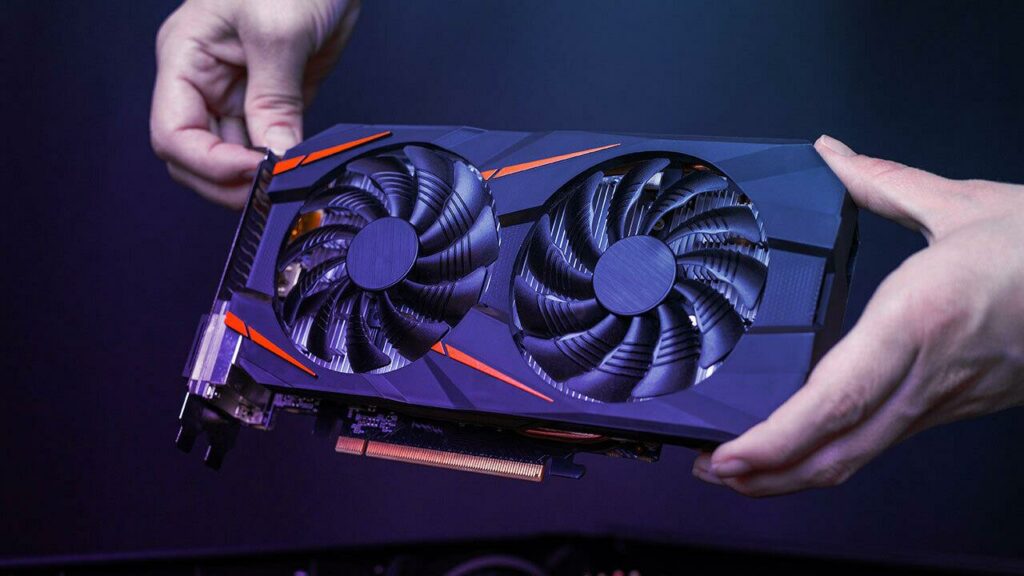
Newer cards handle this better, but older or lower-quality ones might struggle. Regardless of the card, if the cooling system isn’t working properly, overheating is likely.
Here are the reasons:
Heavy Usage:
Imagine your GPU as a hardworking athlete. When you make it work hard by playing high-resolution games or running complex software, it generates a lot of heat. Just like how athletes sweat when they exercise, the GPU heats up.
Dust And Dirt:
Just like how dust collects on shelves, it can also settle inside your computer. Dust and dirt can clog up the fans and heat sinks that are supposed to keep your GPU cool. When this happens, your GPU can’t cool down properly, and it overheats.
Poor Ventilation:
If your computer doesn’t have good airflow, the hot air generated by the GPU can’t escape properly. This trapped hot air can make the GPU even hotter.
Overclocking:
Overclocking is like pushing your GPU to work faster than it’s supposed to. While it can boost performance, it also generates more heat. If your GPU isn’t designed to handle this extra heat, it can overheat.
Faulty Fans Or Cooling System:
Sometimes, the fans or the cooling system in your computer might not be working properly. If the fans don’t spin fast enough or if there’s a problem with the cooling system, your GPU can overheat.
Read Also: Is 100% GPU Usage Bad?
How To Lower The Temperature Of An Overheating GPU? – Cool It Down Now!
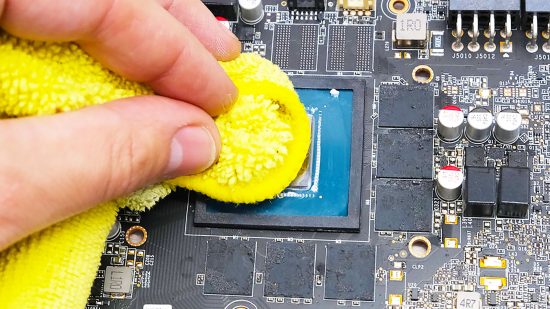
Here are some simple steps to lower the temperature of an overheating GPU:
Clean Your GPU:
If the fan in your computer’s graphics card is dirty, it can cause the graphics processor to overheat because there won’t be enough air to cool it down properly.
Depending on the type of dust and dirt in your surroundings, your computer might start showing different kinds of errors. To fix this, you should clean the fan in your graphics card, as well as the inside of your computer case and any air filters it has.
Improve Airflow:
If your computer is in a spot where it can’t get enough fresh air, try moving it to a spot where there’s more airflow. Also, check if the fans are set up right. They should blow air in a way that helps each other, not block each other.
Make sure to see if one fan’s hot air isn’t blowing onto another fan’s hot air. And make sure there’s plenty of room inside the computer case for air to move around freely.
Avoid Overclocking:
When you Overclocking your GPU, it can make things run faster. But it also puts more stress on your system. This extra work can cause the GPU to get too hot.
Before you try to fix it, you should check if your GPU is already running faster than normal and if that’s why it’s getting too hot. If that’s the case, you have a couple of options.
You can set it back to its normal speed or slow it down a bit to make it cooler. But if you do that, you’ll lose some of the good stuff, like how clear your screen looks, how smoothly things move, and the cool graphics settings you can use.
Monitor Temperatures:
Use software to monitor the temperature of your GPU while it’s running. If it’s consistently getting too hot, you may need to take further action.
Adjust Fan Speeds:
Most GPUs come with software that allows you to manually adjust fan speeds. Increasing the fan speed can help dissipate heat more effectively, but it may also increase noise.
Apply Thermal Paste:
Dry thermal paste can make your GPU overheat. When there’s not enough thermal paste, the processor doesn’t connect well with the heat sink. So, the GPU can’t cool down properly. If this happens, you should replace the thermal paste on your video card. Just be careful when you do it.
Consider Underclocking:
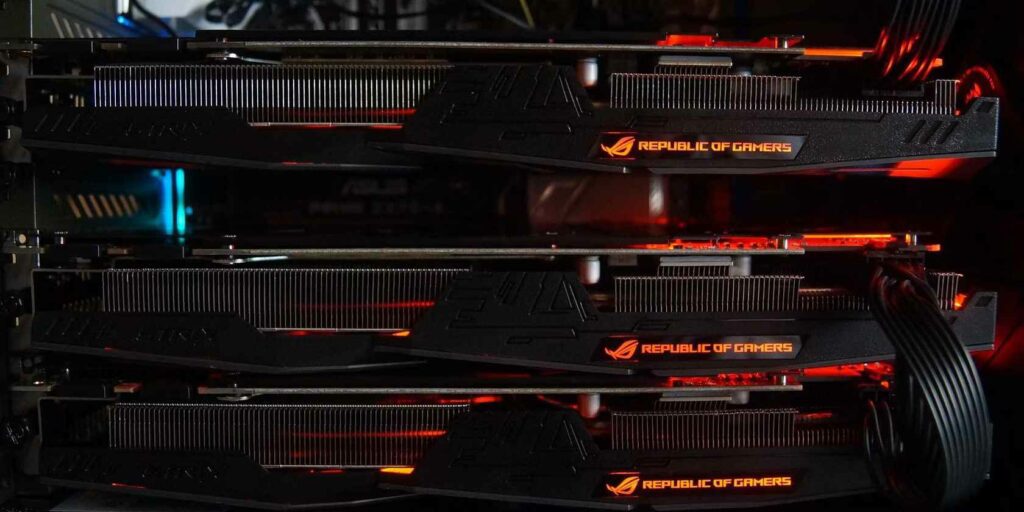
If all else fails, you can underclock your GPU, which means reducing its operating frequency. This can decrease heat output, but it will also reduce performance.
Read Also: Do GPU Brands Matter?
Frequently Asked Questions:
1. Will My Computer Shut Down If My Graphics Card Overheats?
Yes, your computer most likely will shut down if your graphics card gets too hot. It’s like a safety switch to prevent damage. Imagine it like a hot pot automatically turning off to avoid burning itself.
2. Why Is Overheating Bad For A GPU?
When a GPU gets too hot, it can cause damage because the high temperature puts stress on its parts. This stress can make the GPU slower or even stop working altogether. Overheating can also shorten the lifespan of the GPU, meaning it won’t last as long as it should. So, keeping a GPU cool is important to make sure it works well and lasts a long time.
3. Did Overheating Damage My GPU?
If your GPU got too hot, it might have caused damage. Overheating can harm the delicate parts inside your GPU, like the circuits and chips. It’s important to keep your GPU cool to avoid this.
4. What Are The Consequences Of A Computer’s Graphics Card Overheating And Shutting Down?
When a computer’s graphics card gets too hot and shuts down, it can cause damage to the card and make your computer crash or freeze. So, it’s important to keep your computer cool to avoid these problems.
5. Do Outdated Graphics Drivers Cause GPU Overheating?
Outdated graphics drivers might not directly cause overheating, but they can play a role. Think of your driver like a car’s instruction manual. An outdated one might make the engine work harder, using more energy and getting hotter. Newer drivers are like updated manuals, helping your GPU run more smoothly and stay cooler.
6. Can Overheating GPU Cause BSOD?
Yes, A hot graphics card (GPU) can crash your computer with a Blue Screen of Death (BSOD). Think of it like the computer getting a fever and needing to shut down to cool off.
7. Can Overheating GPU Cause Shutdown?
Yes, An overheating graphics card (GPU) can absolutely cause your computer to shut down. It’s like a safety switch to prevent the GPU from getting too hot and burning up.
8. How Do I Know If My GPU Is Overheating?
If your GPU (Graphics Processing Unit) is overheating, you might notice your computer acting strange, like sudden shutdowns or performance drops. You can check the temperature using software like MSI Afterburner or GPU-Z. If it’s consistently running above 80°C (176°F) during normal use, it might be overheating. Make sure your computer’s fans are working properly and keep your PC’s airflow clear to help prevent overheating.
Conclusion:
In Conclusion, If your computer’s graphics card (GPU) gets too hot, it’s not good. It can slow down your computer, make games stutter, and even shut down completely. In the worst case, it can break your graphics card for good. So, if you think your GPU might be overheating, it’s best to turn off your computer and let it cool down before you try anything else.
Read Also:
Why Do My GPU Fans Keep Turning On And Off?
What Temp Does GPU Fan Turn On?

